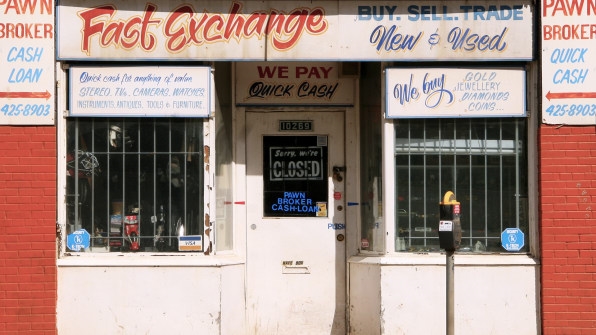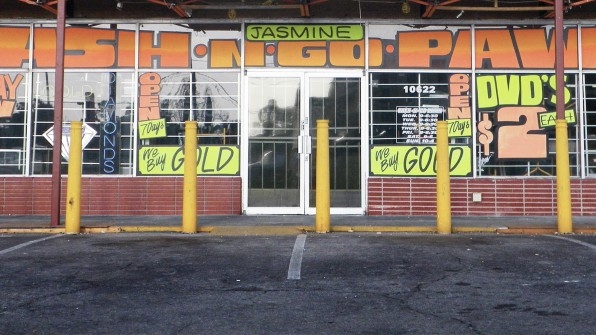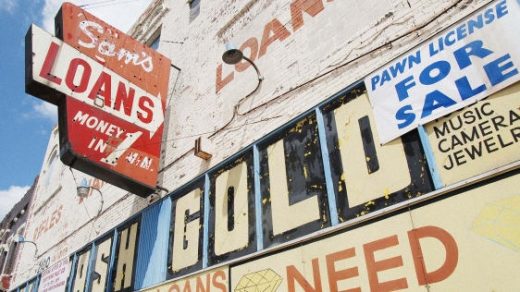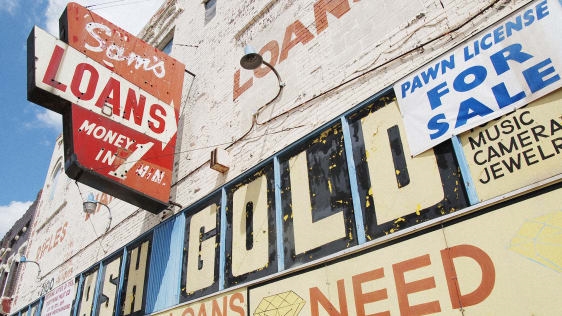This Pawn Shop App Connects Users To Food Banks, In Case They Need More Than Quick Cash
Over 41 million people suffer from food insecurity in the United States. More than 30 million use pawnshops, in part to help ends meet. So it’s not a giant leap to consider that when folks get truly hungry, they may have to sell valuables at cut-rate prices in order to feed their family.
That fact has always bothered Jordan Birnholtz, the co-founder of Detroit-based PawnGuru, which runs a website designed to help sellers get the highest price for their items. People looking to unload something can post a picture and description of what they’re selling, and the zip code where they live, in order to attract offers from multiple pawn shops around the area. Those generally vary by an average of 250%, Birnholtz says, so it’s a great way to get the best price without physically shopping around.
This defies the generally oppressive economics of the industry. Pawn shops profit by buying personal valuables at deep discounts, and then reselling them to walk-in customers as used, but at a higher rate. When operated fairly, they’re not necessarily exploitative to low-income communities. When someone is faced with an unexpected budget crunch, selling things might be smarter than taking a high-interest loan. The problem is that many people in poor areas don’t have the time or transportation go beyond their neighborhood dealer, which means some spots offer the lowest they think a seller will take.

Jonathan Polter, another PawnGuru cofounder, says that before starting the company he took a handful of items from home–some rings, iPads, and a violin–over to test the market along the city’s impoverished 8 Mile Road. “The price difference was 500% from Pawn Shop A to Pawn Shop B two miles away,” he says.
PawnGuru’s model is designed so that people get a fairer resale value for their goods: Rather than being taken advantage of in a time of need, they might be empowered. The company has attracted $1.5 million in funding from Impact America Fund, which backs startups that can improve low-income communities, and Invest Detroit, a community development financial institution with a similar city-specific mission. But mid-December 2017, it began advertising for another unrelated company on its site, in part to divert people in too dire of straights away from the service completely. “Need help? Want to offer help? Try FoodFinder to find a pantry near you,” reads the clickable blue banner-style ad, which runs directly beneath its logo.
FoodFinder is a nonprofit app that allows people to search for nearby food pantries and check what might be stocked there. Founder Jack Griffin started his effort in 2014, the same year as PawnGuru. He met Birnholtz late last year through OptiMize, a social entrepreneurship program associated with the University of Michigan, where Birnholtz, who is an alumni, serves as a mentor. “I saw him working in a space really similar to ours and serving a very similar group of people,” Birnholtz says, noting that many who use its service return a few times a year to make ends meet. “I saw an opportunity to support his work and also to help our end users get what they need.”

PawnGuru is active throughout the U.S. with a half million registered users and 2,000 or so pawn shops signed up. So far, FoodFinder assists about a thousand towns and cities with roughly 30,000 users. The duo decided to collaborate around the holidays because, especially with many kids out of school and unable to access free or reduced-fee school lunch programs, that’s a time when insecurity spikes. Demand increases in the summer, too, when schools are closed. During those times, FoodFinder sees dramatic spikes in traffic.
For Griffin, the collaboration makes sense–especially because many lower-income Americans are using smartphone-enabled services as digital lifelines. “Free food providers… are overwhelmingly supportive of our efforts to bring more visibility to the work being done in the food assistance space,” he says in an email to Fast Company. According to Birnholtz, who has access to that data, the first week that the banner went live, FoodFinder saw a 500% increase in traffic.
The PawnGuru team seems happy to direct would-be users to a free resource that might cause them not to pawn some things. “Basically our job is to provide customers with as many resources as possible during a pretty difficult time,” Birnholtz says. “We know that people are going to come back to us if they have a positive experience, so anything we can do to give them more information and a more positive experience on our site increases [those] odds.” Some short-term losses are worth long-term customer loyalty—especially if lives improve.
Fast Company , Read Full Story
(17)



